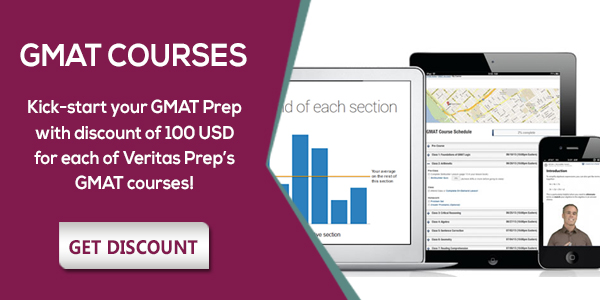How do you know if taking a GMAT course might boost your score? Here are the top tell-tale signs, based on data aggregated over the past five years from people who came to Austin GMAT Review for help after getting less-than-desired GMAT scores on their own.
1. You thought you were good at math, but your GMAT verbal score is higher than your quant score.
Being strong at math does not guarantee a strong performance in the GMAT quant section. Why? Because the GMAT math questions are designed to measure multi-step reasoning, not just math knowledge. The questions are very different than what you were tested on in your high-school math class or even in college.
Do not despair. With the right preparation focused on what GMAT is testing, you should be able to perform better. Head to class, then try again.
2. You are a native English speaker, but your GMAT verbal score is below the 70th percentile.
If English is not your first language, the GMAT verbal section may be your highest hurdle, and you may need to get help. You can learn the rules of English grammar and logic.
In fact, the non-native English speaker may end up testing better in GMAT verbal than the native English speaker who has developed careless grammatical habits.
If English is your first language, and you flubbed the GMAT verbal section, you probably fell into a common trap: You assumed that because a sentence “sounded right,” it was right. You were wrong. When it comes to GMAT verbal, you must know the rules.
Expert instruction can help you discover what you didn’t know. Head to class, then try again.
3. After studying faithfully for months, you took the GMAT. It did not go as well as you hoped. You studied more, took the GMAT again, and got the same score.
I don’t know your personal circumstances, but I have two guesses as to what happened. Guess #1: You’re not using the process of elimination to solve the GMAT verbal questions. Guess #2: You’re relying heavily on elimination in the GMAT quant section.
Reverse that strategy.
For GMAT verbal questions, eliminate the wrong answer choices to find the right answer. In GMAT quant, if you have a solid math foundation, you shouldn’t need the answer choices. Do the math for a question, and select the right choice based on the answer at which you arrived.
You can get to a certain level on your own and then stall. More practice using the same methods probably won’t help if what you actually need is a new set of tools. Head to class, then try again.
4. Bonus Sign that You May Need a GMAT Class: You have a heavy work schedule / active social life / kids.
Whether you are a workaholic, social butterfly, and/or minivan driver, you have conflicting obligations. If you keep finding reasons to put off studying, a GMAT prep class may be the right option. The combination of dedicated class hours, curriculum, supportive instructor, and like-minded students can help provide you with focus and keep you on track.
A well-structured GMAT course will also save you time. You’ll spend less time figuring out the best approach to take toward the exam than you would on your own. Look for a course that does not require you to spend a lot of time on your own working through materials (or you’ll be back to self-study). If you’re taking an in-person class, check out the instructor. Ideally, the instructor should not only have scored well on the GMAT, but also have teaching experience – you want someone who can coach you to your best score. Ask around for recommendations, and look for reviews.
If you’ve taken the GMAT (practice or the real thing), read the signs. Think you can do better? Start checking out GMAT courses.

Source: BusinessBecause.com



